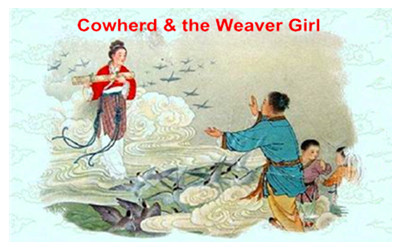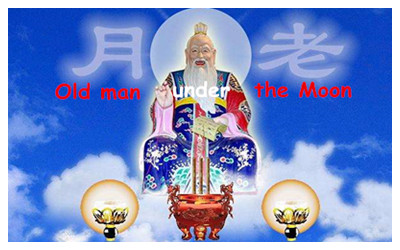Skype: neodalle-travel
Tel: +86 135 7447 2266
E-mail: sales@visitaroundchina.com

 The ancient Chinese marriage system was an arrangement and sale of marriage under the patriarchal system. Marriage is a matter of the family of both men and women. The establishment and dissolution of the marriage are decided by the parents.
The ancient Chinese marriage system was an arrangement and sale of marriage under the patriarchal system. Marriage is a matter of the family of both men and women. The establishment and dissolution of the marriage are decided by the parents.During the Three Kingdoms (220-280), Southern frontiers in China that were still behind in civilization had official matchmakers as well.
The traditional complicated engagement processes before marriage were also simplified by the policies of the Tang (618-907) and Song (960-1279) governments, to encourage more people to get married quickly.
Official match makers became more professional, especially appointed by the government even with certifications later in the Yuan Dynasty (1271-1368).
And in the Qing Dynasty (1644-1911), there were many such matchmakers in Xinjiang where large numbers of male criminals and farmers were sent for land reclamation. And to let them settle down, official match makers would help the singles to find spouses.
Yet not all of them were lucky enough to marry someone, due to the small number of women in the area.
Opportunities during festivals
 Ancient Chinese still had certain freedoms to get married with people they liked, rather than being completely manipulated by their parents or government.
Ancient Chinese still had certain freedoms to get married with people they liked, rather than being completely manipulated by their parents or government.
In the Spring and Autumn Period (770-476BC), there was an annual "Mid-Spring Meeting" on the third day of lunar March that provided unmarried people a chance to get to know each other.
In The Rites of Zhou, it is recorded that men and women who fell in love during this meeting can get married freely without their parents interfering. On this day, unmarried females who often stayed at home would come out and had fun near the river bank. Each single man would let his cup of wine run down from the upper reaches of the river. And the woman needed to take the wine if a cup stopped before her. Once she and the cup's owner were satisfied with each other, they would have more free communication later.
Lantern Festival was another opportunity for single people to meet. On the night of that day, unmarried men and women would meet at the flower fair and lantern-decorated street.
Romance often happened, although not all of them ended in happiness.
Ouyang Xiu, a famous poet from the Song Dynasty, depicted a woman's longing for the man she met during Lantern Festival in his poem Yuan Xi.
It goes like this: "last lantern festival, the flowers fair decorated with lights were daylight bright. We met after dusk when the moon rose behind willow trees. This year the moon and lanterns are still the same, yet you are not here anymore. I am sad, with tears shed on the sleeves of my spring coat."
Different lifestyles
 However, there were still some people who enjoyed being single and willingly chose to lead their own lifestyle. According to an epitaph in the Forest of Stone Steles Museum in Xi'an, Shaanxi province, a hermit whose surname was Liu from the Jin Dynasty (1115-1234) chose to remain single.
However, there were still some people who enjoyed being single and willingly chose to lead their own lifestyle. According to an epitaph in the Forest of Stone Steles Museum in Xi'an, Shaanxi province, a hermit whose surname was Liu from the Jin Dynasty (1115-1234) chose to remain single.
Liu spent most of his time collecting and appreciating calligraphy and paintings. He said he would like to marry someone, but if he could not find the one he really loved, he would rather be single.
Some ancient Chinese women chose to look after her parents instead of getting married. In Zhan Guo Ce, an important text of the Warring States Period (475-221BC), recorded Beigong Yingerzi who willingly spent her life taking care of elder parents. Yingerzi later became the synonym for filial women.
And a certain number of men and women preferred a silent single life in monasteries as monks, nuns or Taoist priests. Not only common people but also royals made this choice.
Princess Jinxian and her little sister Princess Yuzhen from the Tang Dynasty chose to be Taoist priests. Their father, Emperor Li Dan, supportively spent a large sum of money to build Taoist temples for his beloved daughters.
 Ask Questions ?
Ask Questions ?